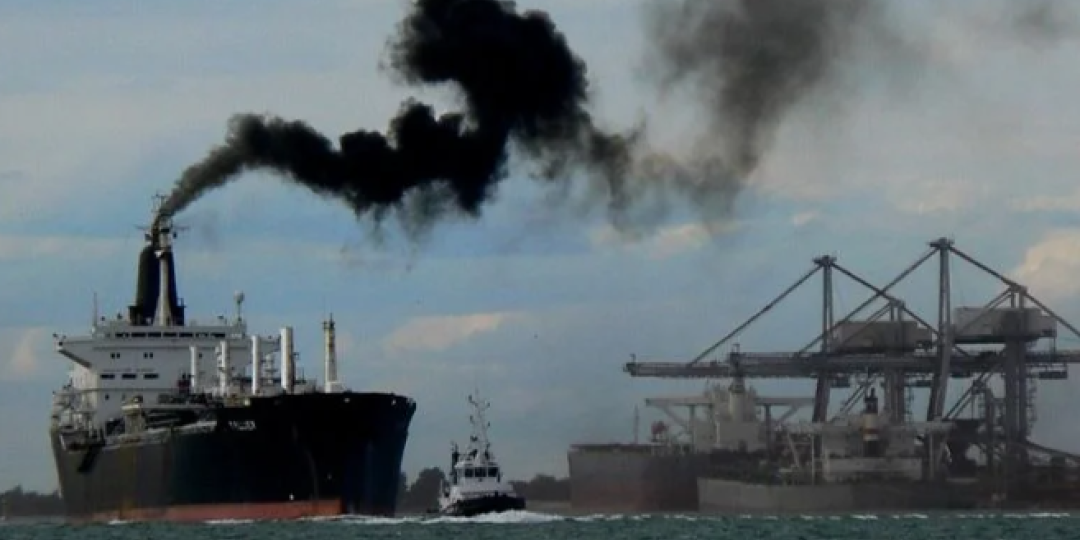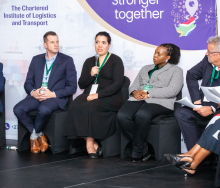It has emerged that 47 countries, including the European Union, Canada, Japan, and climate-vulnerable Pacific Island states, are mobilising support for levying charges on greenhouse gas emissions from the international shipping sector.
According to documents seen by news agency Reuters, deliberations at an ongoing International Maritime Organization (IMO) meeting now in its second week, present four proposals backed by all involved.
These proposals advocate imposing fees on each tonne of greenhouse gas emitted by the industry.
The backing for this initiative has more than doubled since last year's French climate finance summit, where only 20 nations publicly supported a carbon levy.
Proponents argue that such a policy could generate over $80 billion annually, which could then be reinvested in developing low-carbon shipping fuels and aiding poorer nations.
However, opponents, such as China and Brazil, argue that it would disproportionately penalise emerging economies reliant on trade.
These nations are currently vying to persuade numerous undecided countries, including most African nations, on the matter. The IMO makes decisions through consensus but can resort to majority support if needed.
Last year, the UN agreed to target a 20% reduction in emissions by 2030 and achieve net-zero emissions by around 2050.
While countries agreed to continue negotiations on the emissions price in talks last week, there were noted divisions on several aspects of the idea.
Albon Ishoda, the IMO delegate for the low-lying Marshall Islands, stressed that a levy remained the only credible path to meet decarbonisation objectives.
He questioned the alternatives if this measure didn't pass, given that certain targets had already been agreed upon.
Shipping, responsible for approximately 90% of global trade, currently contributes nearly 3% of the world's carbon dioxide emissions. This share is expected to increase without more stringent anti-pollution measures.
One proposal, advocated by the Marshall Islands, Vanuatu and others, suggests a charge of $150 per tonne of CO₂ emitted. Experts suggest that such a carbon price could render investments in low-carbon ammonia-fuelled systems economically viable compared with conventional ships.
Ralph Regenvanu, Vanuatu's climate minister, emphasised the necessity for an unprecedented scale and pace of transition, dismissing low-cost solutions as insufficient.
Another submission, supported by the EU, Japan, Namibia, South Korea, the International Chamber of Shipping, and others, proposes combining a pricing mechanism for shipping emissions with a global standard for maritime fuel emissions.
An IMO meeting scheduled for September will serve as a deadline for countries to decide on advancing both the fuel standard and emissions pricing. The EU believes that only the combined implementation of both measures can effectively meet the IMO's targets.
However, countries like China, Brazil, and Argentina have resisted the idea of a CO₂ levy in previous IMO talks. A study conducted by Brazil's University of São Paulo indicates that such a tax on shipping could adversely affect GDP across developing countries, particularly in Africa and South America.
In response, a proposal from Argentina, Brazil, China, Norway, South Africa, the United Arab Emirates, and Uruguay suggests a global limit on fuel emissions intensity, with financial penalties for breaches, as an alternative to a blanket levy on all shipping emissions.
Despite these differing viewpoints, member states are striving to reach consensus on global measures to prevent individual countries from imposing their own standards on the industry. Fragmentation of standards could pose challenges for firms engaged in global shipping.
The EU has hinted at the possibility of including more international shipping emissions in its local CO₂ market if the IMO fails to agree on a global emissions price by 2028.
Uncertainties remain regarding the administration of such a charge and the reinvestment of its proceeds. Diplomats have proposed a compromise wherein the IMO designs a carbon price primarily aimed at reducing emissions rather than generating revenue, thus circumventing the need to treat it as a tax.
Canada has proposed that the IMO agrees on the fundamental design of an emissions price but defers the decision on how the revenue would be allocated, a contentious issue that has derailed previous discussions.
Ishoda of the Marshall Islands expressed hope that disagreements over the specifics would not derail a potential agreement. He stressed the need for progress, even if incremental, to avoid stagnation due to endless debates.













